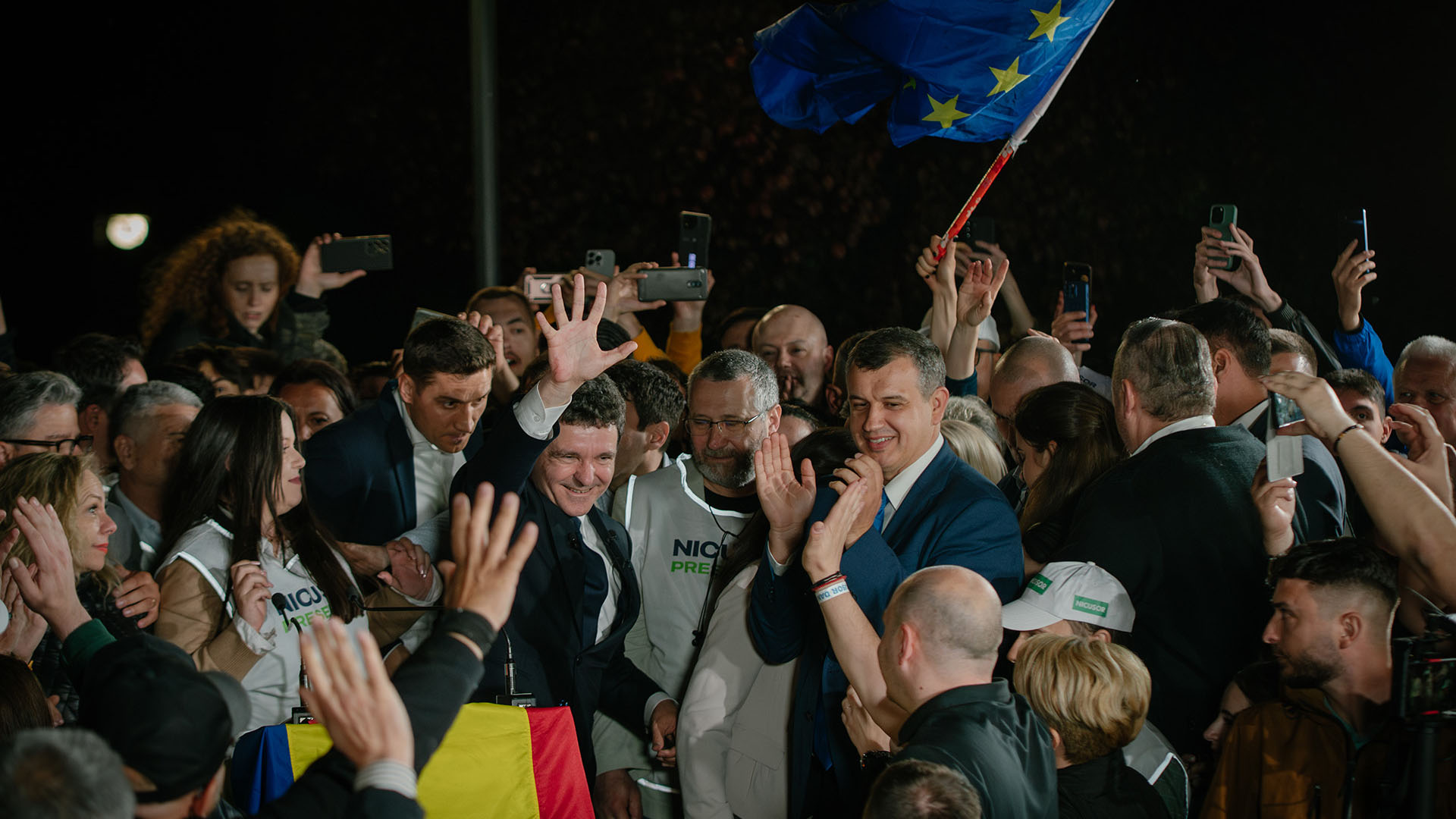The Mayor of Bucharest, Nicușor Dan, won Romania’s presidential run-off held on 18 May, securing 53.6% of the vote and defeating George Simion, the far-right leader of the Alliance for the Union of Romanians (AUR), who garnered 46.4%. Dan’s victory was driven by a high voter turnout (65%) within Romania, especially in urban centres and multi-ethnic regions such as Transylvania, where Hungarian and German minorities strongly opposed Simion’s nationalist rhetoric. While Simion secured the majority of the diaspora vote –55.86%–, Dan’s support at home outweighed that advantage. Notably, voters in the Republic of Moldova also backed Dan, reflecting deep concerns over Simion’s eurosceptic rhetoric and his alleged ties to Russia, which alienated both Moldovan leaders and Western European allies.
His challenge will be to use the presidency’s soft power and strategic reach to both bolster Romania’s credibility abroad and consolidate support for democratic governance and Western integration at home.
This election served not only as a choice between political platforms, but also as a referendum on Romania’s geopolitical direction. While Dan’s pro-EU stance and promises of administrative reform were central to his campaign, a decisive factor in his victory was widespread resistance to extremism and fears of a shift towards nationalist populism. Simion’s controversial image, fuelled by provocative interviews abroad such as his appearance on CNEWS in Paris –while deliberately avoiding national media debates– deepened perceptions of his detachment from democratic norms. Minority communities, particularly ethnic Hungarians, feared growing intolerance, while Moldovan voters saw Dan as a safeguard of Romania’s commitment to Moldova’s EU future.
Despite Dan’s electoral success, the structural roots of populist discontent in Romania are perhaps the biggest challenge of the next few years. The parliamentary bloc aligned with Simion retains around 40% of seats, leaving the possibility of legislative gridlock and political instability. Additionally, unresolved economic hardship, public frustration with political elites and systemic governance issues continue to create fertile ground for populist narratives. In this environment, Dan’s presidency faces the dual challenge of preserving democratic order and enacting meaningful reform, particularly in a fragmented and distrustful political landscape.
Nevertheless, the Romanian presidency holds significant weight in foreign affairs, national security, and defence policy. Dan has already signalled a strong pro-Western orientation. His first official conversation after being elected, held on 19 May, was with NATO’s Secretary General, Jens Stoltenberg. In this exchange, Dan reaffirmed Romania’s commitment to NATO and announced that his administration would prioritise increased defence investments in line with Romania’s strategic role on NATO’s eastern flank. This marks a continuation –and likely acceleration– of Romania’s integration into broader European defence structures amid heightened security concerns linked to Russia’s war against Ukraine.
Dan is also expected to further deepen Romania’s bilateral relationship with France, particularly in defence cooperation, where joint initiatives have expanded in recent years. France has been an increasingly visible player in Romania’s security infrastructure, and Dan’s presidency could solidify this trajectory, considering his affinity to the country (he studied for his doctorate in mathematics at Paris Sorbonne XIII). At the same time, maintaining strong ties with the US remains a central pillar of Romania’s foreign policy. Dan’s pro-European and Atlanticist views are likely to guide his diplomatic strategy, especially as the region prepares for further potential instability linked to Russian influence and rising populism.
Importantly, Dan’s presidency could represent a reassertion of democratic values and institutional balance at a time when many European states face creeping authoritarianism. His background as a civil society activist and independent reformer lends credibility to his stated goals of transparency, rule of law and institutional modernization. While constrained domestically by a fragmented legislature, Dan’s foreign policy posture signals a clear commitment to anchoring Romania in the transatlantic alliance, reinforcing its position as a frontline state in the EU’s eastern defence architecture.
In this context, Romania’s regional role may grow beyond its borders. With Moldova’s EU accession process accelerating and tensions in the Black Sea and Western Balkans persisting, Dan’s presidency may become a stabilising factor in a volatile region. His challenge will be to use the presidency’s soft power and strategic reach to both bolster Romania’s credibility abroad and consolidate support for democratic governance and Western integration at home. While the day after the election brought a sense of clarity and temporarily eased the heightened tensions of a divisive campaign, the real challenge for Romania’s new President has already begun finding allies that help him build the internal political stability needed to raise the country’s credibility abroad.



